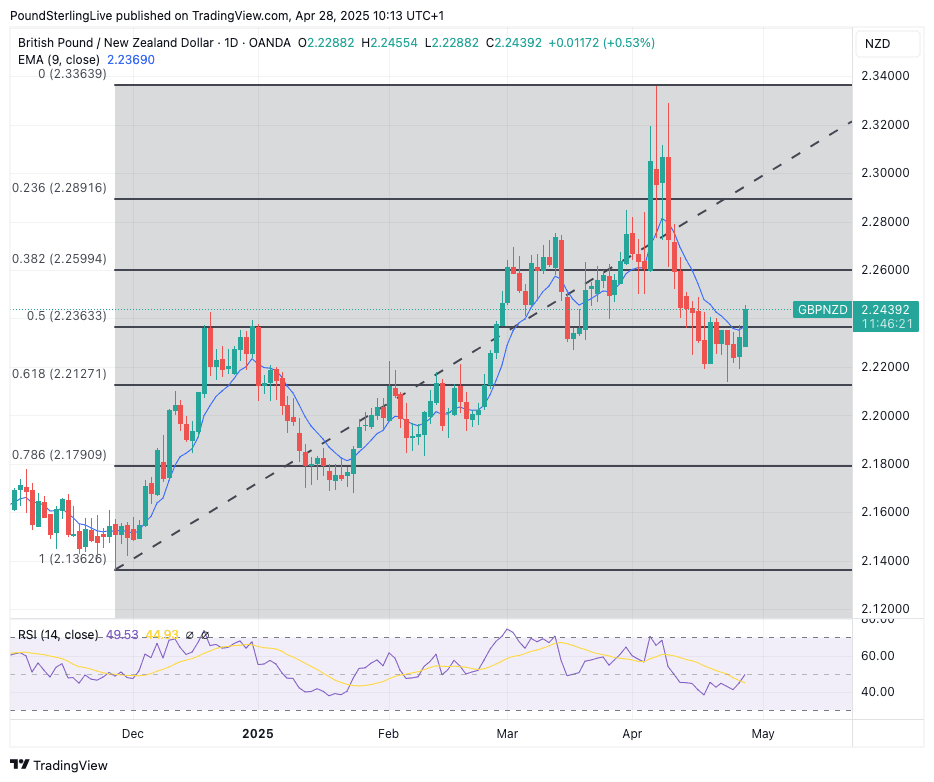Pound to New Zealand Dollar Week Ahead Forecast: Turning Higher Again
- Written by: Gary Howes

Image © Adobe Images
The New Zealand Dollar's recent phase of strength is ending.
The Pound to New Zealand Dollar exchange rate (GBP/NZD) opens the new week with a strong bid, rising by half a per cent on the day to reach 2.2443.
This gives NZD buyers the best rate of exchange in two weeks and indicates that a consolidative pullback is ending and that Sterling is turning higher again.
A look at the daily chart shows GBP/NZD spiked to above 2.32 in early April as markets baulked at U.S. tariffs, which were far more punitive than the market was expecting. Because the NZD is highly sensitive to global trade and broader risk sentiment, it was little wonder it slumped on the headlines.
Compare GBP to NZD Exchange Rates
Find out how much you could save on your pound to New Zealand dollar transfer
Potential saving vs high street banks:
NZ$5,350
Free • No obligation • Takes 2 minutes
But it soon became clear Trump was ready to negotiate, leading markets to pare the extremes of the post-tariff announcement trades, giving NZD a clear route higher and pushing GBP/NZD back to 2.22.
So we have seen a spike and a consolidative pullback in GBP/NZD during April, and as we approach May, it looks as though that phase might be ending.
The chart shows the Fibonacci retracement levels of the post-November rally in GBP/NZD and shows support at 2.2179, which is the 61.8% Fib retracement of that rally. The same level has offered good support and resistance guidance in the past, as per the chart.
Above: GBP/NZD at daily intervals with the Fibonacci retracement levels of the post-U.S. election rally.
🎯 GBP/NZD year-ahead forecast: Consensus targets from our survey of over 30 investment bank projections. Request your copy.
Should we be entering a new pulse higher, gains to the 38.2% Fib level become possible, which offers us a decent target for the next one to two weeks.
This NZD weakness is consistent with a new trade initiated by strategists at MUFG Bank that looks to capitalise on a reversal of the Kiwi's recent outperformance.
"The NZD’s performance this month stands out. It has been the second-best performing G10 currency alongside the safe haven currencies of the CHF, EUR and JPY," says MUFG in a recent note.
"With global growth slowing in response to the heightened policy uncertainty, trade disruption and tighter financial conditions, we do not expect the NZD’s recent outperformance to continue," it adds.





